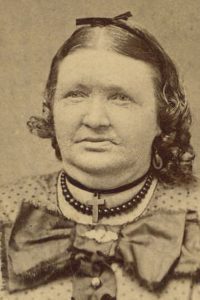

Genealogy is a great avenue to find new mysteries. This is the case with my recent research into William Willett, Jr., the brother of 3rd-Great-Grandmother Eleanor “Ellen” Willett. Ellen and William Jr. are two of the children of William Sr. and Harriet (Holden) Willett.
For context: Ellen married William Jury in Canada and is the mother of John Charles Jury. Ellen, John, and two of John’s siblings immigrated to the United States living in Kansas, Missouri, and Michigan. John married Matilda White and they are the parents of Matilda Jury, who married William J. Peelle.
Now, to Ellen’s brother, Wiliam Jr. . . . .
Family Stories
According to family, William Jr., who was born in England and moved with the family to Canada, spent a significant portion of his adult years in Australia. It was there, that he supposedly became a man of considerable wealth. According to family stories, William Jr. made his money in the ship building industry. However, all most nothing was known about his personal life.

Released into the public domain by the author.
The Property Dispute
The first article I found in my recent research was regarding a dispute over the ownership of 500 acres of land in Blenheim and Blandford Townships in Ontario, Canada. In 1848, William Jr. had agreed to purchase the land from the Canadian government. He made initial payments and improved the land. Then he left for Australia.
During William Jr.’s absence, his father, William Sr., lived on the property and continued payments on the property from rent made on portions of the property and from money William Jr. sent home. When the payments were complete, his father got a patent on the land in the name William Willett of Blenheim without clarification of senior or junior. After that, he had treated the property as his own, including taking out a mortgage and specifying what to do with it in his will.
When William Jr. returned from Australia 15 years later, he went to sell a portion of the property and found out he did not have title to the property. And, his father’s will only provided for him to receive 50 acres of the land. Clearly, before his death, his father had come to assume the property was his own. Perhaps, he saw it as payment for overseeing the property for so many years or had a different understanding of the agreements regarding the property.
The case ended up in court. William Jr. pled his case and it appears that the other parties saw merit in his case. Still, it left me wondering. What had his father’s understanding been regarding the property? Did William Jr. have to pay the mortgage? Was the property simply removed from his father’s will? Was there anything else of value in his father’s will?
Wealth & Occupation
When William Jr. died, he was referred to a gentleman, which is consistent with a man of means. He was 90 and it stated that he was overseeing the building of houses when he caught a chill and ended up with pneumonia. So, houses are not ships, but it aligns with someone in the building business. Yet, it seems odd that a gentleman would be building houses at his age – even if he was simply overseeing the building.
However, the very modest mention of his death in the newspapers stated that he had made his fortune in the gold fields of Australia. So, the questions are: How rich was he really? Did he work in ship building, make money in the gold fields, or both?
His will did not answer any of those questions as he simply made his wife Anne the executrix of his will and gave her everything. Now, Canadian probate records might provide more detail, but so far all I have learned from Canada is that his estate paid $3250 in inheritance tax in 1905, the year after his death. Based on the Succession Duty Act of 1892 and the fact that his wife was to inherit everything, taxes would not have applied if the estate did not exceed $100,000. If the tax applied only to money exceeding $100,000, his estate would have exceeded $200,000, but I am not clear on the exact implementation of the law. Thus, I estimate that his estate was somewhere between $130,000 and $215,000. Probate papers would likely provide clarification. (Based on a 1915 to 2023 calculation, this would be approximately $3.3million to $5.5 million Canadian dollars today. Note: I could not find a calculator that went back to 1905.)
Additionally, William’s wife acquired a lawyer in Newport, Australia (near Sydney) as he owned various properties there at the time of his death. Those properties were eventually sold for several hundred pounds. This portion of his estate was not settled for over 10 years after his death.
Anne Sexton, His Wife
His wife Anne, whom was over 40 years his junior and whom he had not married until 1894, died in 1917. At the time of her death, she had an estate in Canada, presumably what William had left to her as she was born in Australia. She also owned 3300 pounds of stock in Victoria Iron Rolling Company in Australia.
All this leaves me wondering why they hadn’t disposed of these properties and investments in Australia when they moved to Canada? Did they plan to go back? Did they move suddenly? Who inherited the property after Anne died? Did either of them have any children? Did William have any other wives? And, who was Ellen Dunn who handled Anne’s estate?
Clearly, more digging to do!
Featured Image by Gordon Johnson from Pixabay.